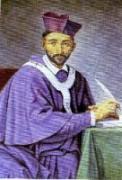|
|
||||||||||||||||||||||||
 |
Featured person
Hugh MacCaghwell
Recently added |
Patricia Ford (1921 - 1995): |
||||||||||||||||||||||
Patricia Smiles, as she was born, was an enthusiastic and energetic charity worker and headliner of women's rights; from a political family, she stepped into her father's shoes to become the first woman MP from anywhere in Ireland. She was the only child of Lieutenant-Colonel Sir Walter Dorling Smiles, who had been a trader in Assam, India, was a Companion of the Order of the Indian Empire, holder of the DSO, a Deputy Lieutenant for County Down, and MP for Blackburn (his successor was Barbara Castle, who became one of the most celebrated woman MPs), and subsequently for County Down (1945) and then North Down (1950). He resided at Portavo, near Donaghadee, County Down, overlooking the Copland Islands and in full view of the busy shipping traffic between Ulster and Scotland, especially the regular Larne-Stranraer ferries. Through her father, Patricia was a great-grand-daughter of the Scottish campaigner for Parliamentary reform, Samuel Smiles, who later became celebrated for his encouragement of working-class self-improvement in such books as Self-Help and Thrift. Another prominente in the family tree was her great-aunt, Mrs Beeton, whose Book of Household Management became almost canonical.
Patricia was educated at Glendower Preparatory School in London and at Glenlola Collegiate, Bangor, spending also some time in Europe. During the Second World War she was active at London's Ulster Canteen and at a children's hospital in Northern Ireland; in 1941 she married Captain Neville Montagu Ford, son of the Revd Dr Lionel Ford, Headmaster of Harrow School and Dean of York. They settled in Cheshire. In 1953, catastrophe struck the Smiles family when Patricia's father was one of those who drowned when the ferry Princess Victoria, making the busy Larne-Stranraer crossing, foundered in a gale in 1953, tragically a mere five miles from Portavo. A by-election was necessitated at which Patricia Ford was elected unopposed; she became the first woman from any Irish constituency ever to sit in the House of Commons at Westminster (although not the first to be elected - though Countess Markiewicz was elected for Dublin St Patrick's in 1918, as an Irish nationalist she refused to take her seat in a London legislature). Her maiden speech, however, consisted largely of an apology for an article in the Sunday Express, in which she had betrayed what was seen as a confidential matter by describing how two other female MPs had, during an all-night sitting, taken a rest break in a private room where Patricia found them snoring. The MPs concerned took great offence, and Patricia was reprimanded, though she quipped following her apology that it was "difficult to see in the dark".
She stayed only two years in the House of Commons, though this was long enough for her to take up certain issues pertaining to women's interests, such as pensions for police widows, and to join with several other woman MPs to present a petition on equal pay to the Houses of Parliament, underlining their outlook by travelling to Parliament in a vehicle from the suffragette era. But she retained political connections, not least by her second marriage in 1956 to the Conservative MP for Surbiton, Nigel Thomas Loveridge Fisher. He was widely regarded as belonging to the liberal wing of the party; he was later a junior minister for the Commonwealth and Colonies under Harold Macmillan, whose "wind of change" outlook Fisher sympathised with. Patricia was rather liberal herself, too much so for many in Northern Ireland who objected to her, as a member of the Orange movement, attending a wedding at the Roman Catholic Church of the Immaculate Heart of Mary, in London (the "Brompton Oratory"), and expelled her.
Patricia then devoted much of her considerable energy into charitable work. Already during the war, she had enthusiastically involved herself with the women's effort to find more food. Members of the Londonderry family would recall Patricia learning how to plough on their estate at Mount Stewart, on Strangford Lough. She became particularly well-known though, prompted by the serious disturbances and sectarian divisions in Belfast, by her founding in 1972 of the Women Caring Trust to improve children's lives in areas racked by violence, and to encourage tolerance and understanding among those who were to shape Northern Ireland's future. The Trust supported a wide range of facilities and activities for mothers and young people from both sides of the religious division. She remained an office-holder until her death; the organisation continues to thrive as Hope for Youth, still working on cross-community activity among young people with the aim of the betterment of society in Northern Ireland.
| Born: | 5 April 1921 |
| Died: | 23 May 1995 |
| Richard Froggatt |


Home | Our Policies | Plaques | Browse | Search | Sponsors | Links | Help | Contact
Privacy & Disclaimer | Cookie Policy | Site Map | Website Design By K-Point
© 2024 Ulster History Circle








